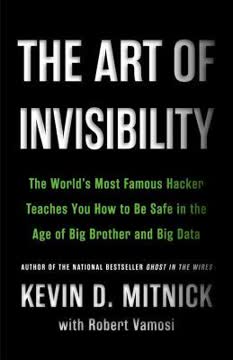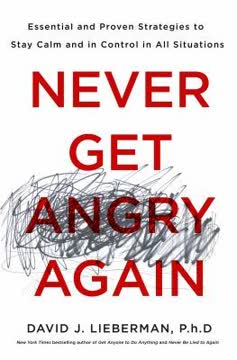Key Takeaways
1. Smart people face unique challenges due to their intelligence
"Who speaks to the challenges faced by the 1 billion people with a better-than-average ability to think? Who speaks to you?"
Unique struggles. Smart individuals often experience alienation, boredom, and difficulty finding work that matches their intellectual capacity. They may struggle with societal expectations and the disparity between their potential and reality.
Heightened awareness. Intelligence brings a keen awareness of life's complexities and contradictions. This can lead to overthinking, existential crises, and a sense of disconnection from others who may not share the same depth of understanding.
Coping mechanisms. To deal with these challenges, smart people may develop coping mechanisms such as:
- Perfectionism
- Procrastination
- Substance abuse
- Isolation
2. The experimental nature of the human brain creates inherent limitations
"We are not designed."
Evolutionary experiment. The human brain is not a perfect, designed machine, but rather an evolutionary experiment. This experimental nature leads to various limitations and quirks that can be particularly challenging for smart individuals.
Inherent flaws. Some of the brain's inherent limitations include:
- Lack of an "off switch" for racing thoughts
- Tendency towards anxiety and overthinking
- Difficulty in accurately predicting the future
- Susceptibility to cognitive biases
Acceptance and adaptation. Recognizing these limitations can help smart people develop strategies to work with, rather than against, their brain's natural tendencies. This might involve mindfulness practices, cognitive restructuring, or developing systems to compensate for known weaknesses.
3. Thinking can provoke anxiety and self-pestering in smart individuals
"Thinking is like running a marathon in a thick fog with our anxiety mounting."
Cognitive challenges. Smart people often experience anxiety related to thinking itself. This can manifest as:
- Analysis paralysis
- Perfectionism
- Impostor syndrome
- Chronic self-doubt
Coping strategies. To manage thinking-related anxiety, smart individuals can:
- Practice mindfulness and meditation
- Develop cognitive restructuring techniques
- Set realistic expectations and goals
- Engage in regular physical exercise
- Seek support from like-minded peers or professionals
Balancing act. The key is to find a balance between utilizing one's cognitive abilities and avoiding excessive self-pestering. This often involves learning to quiet the mind and accept imperfection.
4. Language and logic can both empower and trap intelligent minds
"One word can provide us with meaning for a lifetime; one word can enslave us for a lifetime."
Double-edged sword. Language and logic are powerful tools for smart people, but they can also become traps. They can lead to:
- Over-analysis
- Semantic arguments
- Logical fallacies disguised as truth
Linguistic traps. Certain words or phrases can become organizing principles for one's entire life, potentially limiting growth and exploration. Examples:
- "Great American novel"
- "Unified field theory"
- "Justice"
Logical pitfalls. While logic is essential for clear thinking, it can also be used to justify almost any position, leading to:
- Confirmation bias
- Rationalization of poor choices
- Paralysis by analysis
5. The "god-bug syndrome" creates conflicting feelings of greatness and insignificance
"We are god-bugs. That is the nature of this current experimental model of our species."
Conflicting self-perception. Smart people often oscillate between feeling exceptionally capable and utterly insignificant. This can lead to:
- Mood swings
- Difficulty in self-assessment
- Imposter syndrome
Societal context. The god-bug syndrome is exacerbated by a society that simultaneously values intelligence and often resents or misunderstands it. This creates a confusing environment for smart individuals to navigate.
Finding balance. To manage the god-bug syndrome, smart people can:
- Practice self-compassion
- Develop a realistic self-assessment
- Focus on personal growth rather than comparison
- Seek connections with like-minded individuals
6. Meaning is primarily a subjective psychological experience
"Meaning is primarily a subjective psychological experience."
Nature of meaning. Understanding that meaning is not an external, objective reality but a subjective experience can be liberating for smart individuals. This perspective allows for:
- Greater flexibility in finding meaning
- Reduced anxiety about "finding" the "right" meaning
- Increased personal agency in creating meaning
Components of meaning. The experience of meaning typically involves:
- A sense of purpose or significance
- Feelings of coherence or understanding
- A belief that one's life matters
Cultivating meaning. Smart people can actively cultivate meaningful experiences by:
- Engaging in activities aligned with personal values
- Fostering strong relationships
- Pursuing personal growth and learning
- Contributing to something larger than oneself
7. Value-based meaning-making is key to a fulfilling life for smart people
"You garner the psychological experience of meaning—and make yourself proud in the bargain—by making value-based meaning investments and actively seizing meaning opportunities that present themselves, not by spinning fairy tales."
Active creation. Instead of passively seeking or waiting for meaning, smart individuals can actively create it through value-based decisions and actions.
Alignment with values. Value-based meaning-making involves:
- Identifying personal core values
- Making choices that align with these values
- Engaging in activities that reflect these values
- Regularly reassessing and adjusting as needed
Practical steps. To implement value-based meaning-making:
- Clarify personal values
- Set goals aligned with these values
- Take consistent action towards these goals
- Reflect on experiences and adjust as necessary
- Celebrate successes and learn from setbacks
8. Embracing shifting meanings allows for adaptability and growth
"We boldly stare at the facts of existence—and on some days, each of us will blink."
Dynamic nature of meaning. Recognizing that what provides meaning can change over time allows for greater flexibility and resilience in the face of life's challenges.
Adaptability. Embracing shifting meanings involves:
- Being open to new experiences and perspectives
- Regularly reassessing personal values and goals
- Letting go of outdated sources of meaning
- Cultivating curiosity and lifelong learning
Growth mindset. By accepting that meaning can shift, smart individuals can:
- Avoid becoming rigidly attached to specific outcomes
- Develop greater emotional resilience
- Find new sources of meaning throughout life
- Maintain a sense of purpose even in difficult times
Last updated:
FAQ
What's "Why Smart People Hurt" about?
- Focus on smart individuals: The book explores the unique challenges faced by intelligent, sensitive, and creative people, emphasizing the psychological and existential issues they encounter.
- Understanding suffering: It delves into why smart people often experience pain and distress, despite their intellectual capabilities, and offers insights into the root causes of this suffering.
- Practical solutions: Eric Maisel provides innovative paradigms and practical solutions to help smart individuals manage their pain and lead more fulfilling lives.
Why should I read "Why Smart People Hurt"?
- Insightful exploration: The book offers a deep understanding of the mental challenges faced by bright individuals, which can be enlightening for those who identify as such or know someone who does.
- Practical advice: It provides actionable strategies and techniques to help smart people navigate their unique struggles and improve their mental well-being.
- Empowerment: By reading this book, you can gain a sense of empowerment and learn how to reclaim your passion and live a richer, more productive life.
What are the key takeaways of "Why Smart People Hurt"?
- Meaning-making: The book emphasizes the importance of making meaning in life rather than seeking it, which can help alleviate existential distress.
- Challenges of smartness: It highlights the specific challenges smart people face, such as thinking anxiety, the smart gap, and the lure of language and logic.
- Natural psychology: Eric Maisel introduces the concept of natural psychology, which focuses on understanding and addressing the psychological experiences of meaning.
How does Eric Maisel define "natural psychology"?
- Subjective experience: Natural psychology identifies meaning as a subjective psychological experience, emphasizing the individual's role in creating meaning.
- Value-based meaning-making: It encourages individuals to engage in value-based meaning-making, aligning their actions with their values and principles.
- Practical application: The approach provides practical strategies for reducing distress and enhancing personal satisfaction by focusing on meaning-making efforts.
What is the "smart gap" as described in "Why Smart People Hurt"?
- Intellectual limitations: The smart gap refers to the emotional pain experienced when individuals recognize that they cannot accomplish certain intellectual work due to limitations in their capabilities.
- Frustration and sadness: This gap can lead to feelings of frustration, sadness, and a sense of inadequacy, as individuals struggle to reconcile their ambitions with their abilities.
- Strategies for coping: The book offers strategies to help individuals bridge or work around the smart gap, such as focusing on strengths and making multiple meaning investments.
How does "Why Smart People Hurt" address thinking anxiety?
- Natural anxiety: Thinking anxiety arises from the natural stress and pressure of engaging in intellectual work, which can be particularly challenging for smart individuals.
- Common avoidance tactics: The book identifies common tactics used to avoid thinking anxiety, such as fleeing the encounter, overpreparing, and fantasizing.
- Managing anxiety: Eric Maisel provides techniques for managing thinking anxiety, including mindfulness practices and aligning thoughts with intentions.
What role does meaning play in "Why Smart People Hurt"?
- Central theme: Meaning is a central theme in the book, as it explores how smart people can create and maintain meaning in their lives to reduce distress.
- Subjective experience: Meaning is described as a subjective psychological experience that can be influenced and created by individuals.
- Value-based approach: The book advocates for a value-based approach to meaning-making, encouraging individuals to align their actions with their values and principles.
What are some practical solutions offered in "Why Smart People Hurt"?
- Daily meaning-making: The book suggests making meaning on a daily basis by orienting oneself toward meaning and maintaining a morning practice.
- Addressing meaning challenges: It encourages individuals to take direct aim at their greatest meaning challenges and to make meaning in context.
- Cognitive and behavioral alignment: Eric Maisel emphasizes the importance of aligning thoughts and behaviors with intentions to enhance meaning-making efforts.
How does "Why Smart People Hurt" address the lure of language and logic?
- Power of language: The book discusses how smart people can be ensnared by the metaphors and language they use, which can both illuminate and constrain their lives.
- Logical traps: It highlights the potential for smart individuals to use logic to justify themselves, which can lead to self-deception and manipulation.
- Awareness and balance: Eric Maisel advises maintaining awareness of these lures and balancing the power of language and logic with a focus on genuine meaning-making.
What is the "god-bug syndrome" in "Why Smart People Hurt"?
- Contradictory feelings: The god-bug syndrome describes the simultaneous feelings of greatness and smallness that smart people often experience.
- Inflation and deflation: This syndrome leads to cycles of confidence and ineffectuality, as individuals grapple with their sense of self-worth and existential reality.
- Natural psychology's approach: The book suggests using natural psychology to construct a stable identity and maintain a steady sense of self-worth through value-based meaning-making.
What are the best quotes from "Why Smart People Hurt" and what do they mean?
- "Meaning is primarily a subjective psychological experience." This quote emphasizes the personal nature of meaning and the individual's role in creating it.
- "You are obliged to see through language, so as not to be fooled by its seductive power too badly or too often." It highlights the importance of critical thinking and awareness in navigating the power of language.
- "You are not an object of beauty. You are a subject of beauty." This quote encourages individuals to recognize their own agency and potential for creating beauty and meaning in their lives.
How can "Why Smart People Hurt" help me improve my life?
- Understanding challenges: The book provides insights into the unique challenges faced by smart individuals, helping you understand and address your own struggles.
- Practical strategies: It offers practical strategies for managing thinking anxiety, bridging the smart gap, and making daily meaning.
- Empowerment and growth: By embracing the principles of natural psychology, you can empower yourself to create a more meaningful and fulfilling life.
Review Summary
Why Smart People Hurt received mixed reviews. Some readers found it insightful, relating to the challenges faced by intelligent individuals. They appreciated the book's perspective on meaning-making and natural psychology. However, many critics felt it was repetitive, poorly written, and overly focused on promoting the author's concept of natural psychology. Some found it elitist and dismissive of alternative viewpoints. The book's approach to mental health and religion was controversial. While some readers had "aha" moments, others felt it lacked substance and practical advice.
Similar Books










Download PDF
Download EPUB
.epub digital book format is ideal for reading ebooks on phones, tablets, and e-readers.












